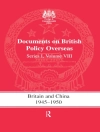The U.S.-South Korea Free Trade Agreement (KORUS FTA) is the second-largest U.S. FTA (next to NAFTA). South Korea is the seventh largest trading partner of the United States, and the United States is South Korea’s third-largest trading partner. The KORUS FTA covers a wide range of trade and investment issues and, therefore, could have substantial economic implications for both the United States and South Korea. KORUS FTA encompasses a range of bilateral economic activities: trade in manufactured goods, agricultural products, and services; foreign investment; government procurement; intellectual property rights; and worker rights and environment protection, among other issues. The United States and South Korea entered into the KORUS FTA as a means to further solidify an already strong economic relationship by reducing barriers to trade and investment between them and to resolve long-standing troublesome economic issues. The United States specifically sought increased access to South Korean markets for agricultural products, services, and foreign investment. For South Korean leaders, the KORUS FTA is a mechanism to promote reform in its own economy and also to gain a competitive advantage in the U.S. market for autos and other manufactured goods. This book examines the provisions of the KORUS FTA in the context of the overall U.S.-South Korean economic relationship, U.S. objectives, and South Korean objectives. It also examines some of the issues that have arisen during its implementation.
Brian M Sullivan
Effects of U.S.-Korea Free Trade Agreement on Small and Medium-Sized Enterprises [PDF ebook]
Effects of U.S.-Korea Free Trade Agreement on Small and Medium-Sized Enterprises [PDF ebook]
यह ईबुक खरीदें और 1 और मुफ़्त पाएं!
स्वरूप PDF ● पेज 119 ● ISBN 9781628088441 ● संपादक Brian M Sullivan ● प्रकाशक Nova Science Publishers ● प्रकाशित 2013 ● डाउनलोड करने योग्य 3 बार ● मुद्रा EUR ● आईडी 7228890 ● कॉपी सुरक्षा Adobe DRM
एक DRM सक्षम ईबुक रीडर की आवश्यकता है












